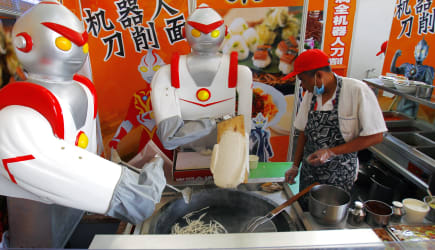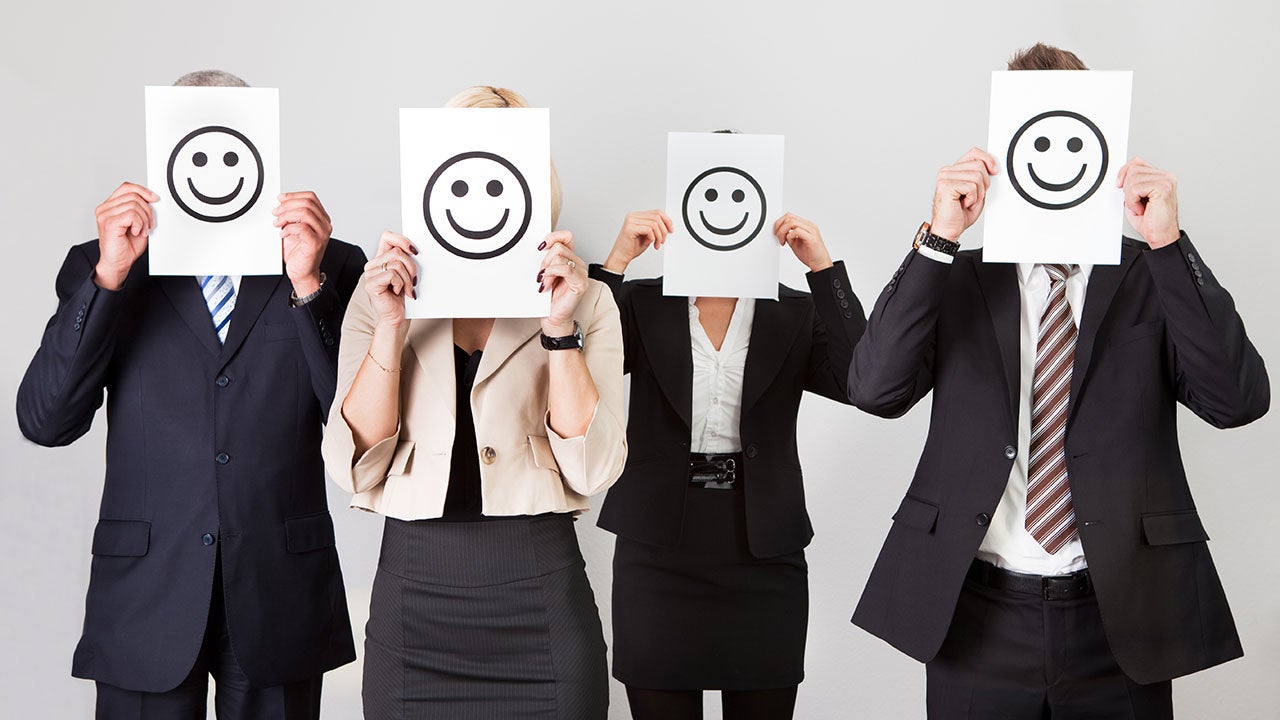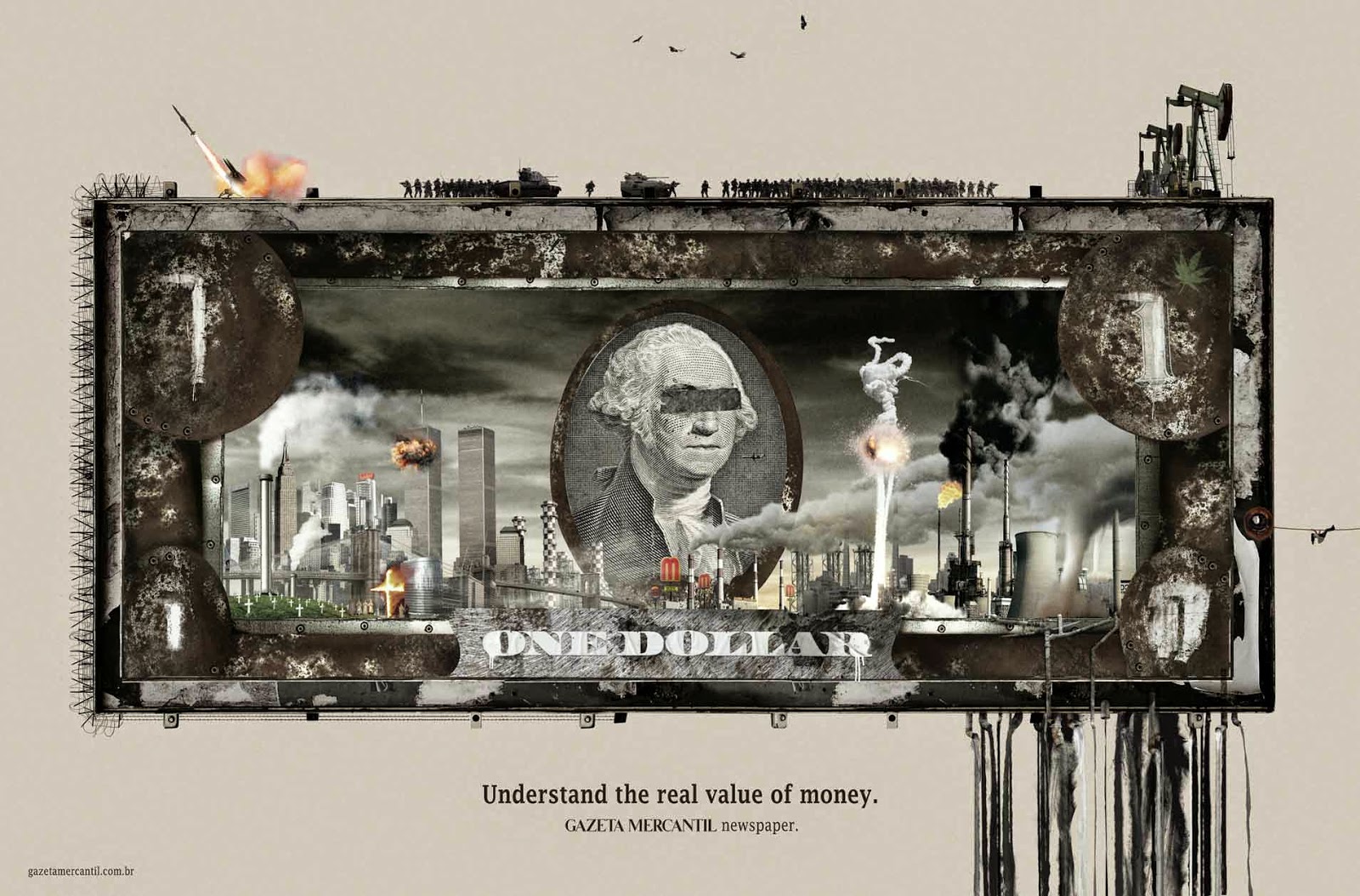The deeper pain of the soul in business and how that will disrupt society in the near future.
In our modern world we cannot claim any more that one aspect will define all others. This column just reveals two deep aspects that are part of our modern chaos and are part of a huge growing problem that will influence untold many lives in our society. Ownership and huge losses of jobs ask for new approaches to life, work and society.
What are you really fan of in sports?
Who are you shouting for, when you support a professional sports team? The players are mercenaries from all over the world. The board are well paid managers and mercenaries too, with perhaps one former local player, as a true local hero. The owner may be a Chinese or Russian billionaire. You don't shout for your favourites colours. You shout for the story that these are your people. How much the faces change, you shout for the story that this is still your team. Once, several generations ago, these teams were really your village or town's team. Now they have become professional stories, that are well marketed to keep up the believe. It's a good story you may say. It makes millions happy.
Companies are only accepting you as community member as long as you can work.
The same story creation is at work in work. Companies are villages of only healthy people. Companies may be called companies, yet we act inside as if we are part of a village. It is how are social genes react to any group we identify with. 'Our company (read village) must grow.' 'Our village must survive tests of time.' 'Our village has a dream.' 'We are a great company with a rich tradition.' Managers mostly talk within the logic of the village frame.
But it is no real village, for a real village would care for it's sick and old. A real village includes everyone. Companies do it differently. Whenever someone is too weak, sick or old, he needs to leave the village. If you live in a country with social laws, companies may give you some money along. In some other countries some owners actually care. But in almost all cases the one who leaves has become a burden and discovers the village is no village, but a company that only appreciates healthy people. 'We have to be all strong and all support the mission. You can't do that any more Bob, so we have to let you go.' You're fired. Socially executed. Banned. The rest moves on. 'We're a team. We have a job to do.'
 |
| “Life is but a stage and we're all players.” Shakespeare. |
Why and when the story is broken.
Then, through global changes, the profits may go down, or a lot of work is strategically outsourced to another country. Suddenly the village is no team anymore, but a place with owners who decide who gets fired. And again when the fired people are gone, we go back to playing a team on a mission, a village with a vision. Still many people feel hurt within. Their genes told them they were connected, yet now they know anyone can be thrown out. Others, act like opportunistic loners, move on to richer places to keep up the act.
Companies are therefore places owned by people, who want us to play village and team as long as the story benefits them. They break the story, when it doesn't suit their interests. Each time they break the story, commitment and motivation go down. Now we consciously play along pretending we believe the story, yet we know it's a lie. The more enthusiastically you play along1 the more change you may stay when there is a choice who to fire. Still, this acting hurts the soul.
Most companies and managers have no clue what to do when the story is broken. Such workplaces feel unsafe. Anybody may be laid off. Suddenly targets and results count and you are not a person, but a machine expected to stick to the protocols written to get desired outcomes. The lower your position in a company, the worse it gets. There won't be any try for even a story, just nasty pressure. Read "Beyond inequality" to find out more how bad this is getting.
Managers work hard to help people get motivated again, or pressure for more results. They play the social village fairy tale or they play hard ball. 'Get real, we're not a family.' The nasty push hurst as much as the lie.
We're basically social beings. One third of our brain seems to focus on social relationship building. So whatever they do, still it doesn't really heal the wound. We mostly make do, because this is a very deep structural system problem. This wound cannot be healed within the system, unless the owners truly care or really change the rules.
Many business owner will now say, 'I don't care, I am a business. My people know this.' Yet when motivation drops, or their own soul hurts, or the whole company is in crisis, what do they turn to? Indeed a story that promises to get results. Hence huge profits for consultants with good stories.
So how can we change the rules and who is truly willing?
The fairytale of the company as a community is unsustainable, as is the hard business contract.
Mostly owners and thus management expect people to play along. Being professional means willing to act the story. Anyone who seeks a job and is heard saying 'I just fulfill my contract and do my job.' yet doesn't express enthusiastic commitment to his new village will not be hired. If people act over enthusiastic to get in, and we don't believe them we don't hire them either. The best actors are comfortable with their new role.
Companies thus hire people based on the quality of lying to themselves. And they are owned by people with the quality of storytelling (read lying) to others.
And who tells the truth? The outcasts, the artists, the anthropologists and employees making fun to deal with the pain. All over internet you can find stories like these wrapped in quotes that herald aliveness and soul, cartoons of work slaves, office humour, thinkers and observers wondering why we think this is the only model. Is the commercially owned company the only and best solution?
It was in the 20th century. But the struggle to keep on believing in this solution gets harder and harder. When clearly there are so many alternatives already active around us. But we're not willing to listen, because we either own a village or we think this is the place that sustains our lives. What to do about the millions who are in pain for lack of real community, who feel pressured to play along with a false one to cater for their own real family?
The question now gets even bigger.
Are people out of work free or are they ballast?
When we look from a spy satellite to earth it is but a small place. We can see millions of people running around like ants to keep several nests happy. The nest of the workplace and its shareholder queens. The nest of the own family. And their own community which they love to see happy, healthy and safe. The owned company once was a great solution for growing diversification of work and qualities needed to sustain society with a growing number of needs. A number that grew even more, when marketers discovered the invention of creating new needs. This diversification created clusters of people focussed on one aspect of what needed to be done for the whole of society, from making chairs to running hospitals. In return the company tried to reap benefits, by asking payment.
Soon however, less and less people need to work. Robots, smarter computers, new area's to outsource to will do more and more for us. Many (like anything that can be done online) will be competed out of work, by people from across the world who'll do the same work for half the price or less. What will de surplus people do? This is a huge question. Are they ballast? Or have they been liberated from work? The answer to that question is yet to be decided by the owners. They, and thus our politicians most probably will choose ballast. Not out of greed, but this is, how for them the system works. You keep on hearing politicians say it 'If we all compete, it will turn out fine.'
The truth is, it doesn't.
We all worked, several generations long, to make this happen en all contributed to create a society with less and less work. How come only a few may get paid for that community effort, because they happen to own the robot or software? And how come the rest must struggle rather than enjoy the benefits? What was economy supposed to do? Perhaps we should start question any business or work contract. Perhaps we need to rewrite the social contract.
 |
| Robots can replace more and more workers. |
Solutions.
When the amount of people, without a job and with too low salaries to make do, grows enormously how will we move on? We have to move on together. Whether we believe this or not, in the end one village is real. The community we live in. We are all our society together. The lie of the village at work, has to become a reality if we want to fix our souls and our world. The company must learn to see itself more and more as part of the world, in stead of an attribute providing something, yet apart from the world. Here local cooperatives seem to be a engaging and involved answer. New kinds of currencies that break the hold of ownership and move towards other principles are being experimented with in many places. (with no hugely viral solution yet I admit, basic income for everyone might be a great break through though.) Our governments should stop harassing people who can't work, for any reason, as a ballast that has to become a earning taxpayer again. They have to discover how we can turn, all those liberated from work into souls that can celebrate live, play with possibilities and add in different ways. People without work will have to find different ways to give meaning to their lives than a job title. Volunteer. Go party. Start being creative. Be an artist. Use your freedom to play your new contribution into reality. Go instead of selling silly gadgets or more plastic do something truly meaningful. Indeed if all work was organized around meaning instead of profit it could both survive basic income politics, attract really motivated people and stay deeper connected to society, which in turn would have a bigger incentive to keep the company going. This is a huge work that lies ahead of us in this century. If we don't address it, poverty, war, revolutions and huge depressions on both personal and society level may happen.
Here's but one of the many visionaries who think on the huge scale of change needed. https://www.youtube.com/watch?v=b9yGP_I9pOM
1
This mostly goes for businesses. In places where almost no one gets
fired, like American schools, people may get bitter en resentful and
hurt the children they should help grow, when they feel forced to
play along.










